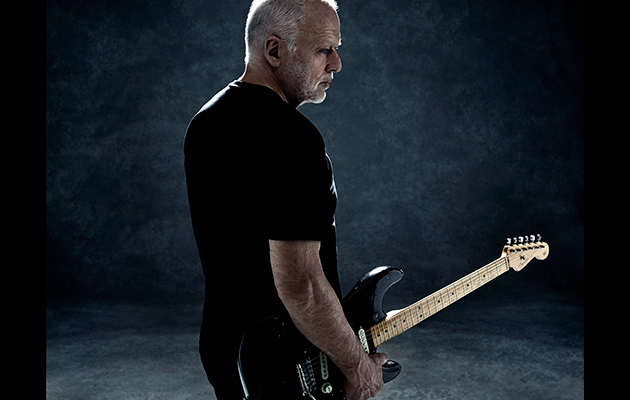
Back on Astoria, Gilmour pauses briefly to look out of the window at a family of ducks foraging upstream along the riverbank. He is thinking back to one of his earliest songwriting efforts in Pink Floyd, Atom Heart Mother’s “Fat Old Sun”.
“It’s one of those songs where the whole thing fell together very easily,” he explains. “I remember thinking at the time, ‘What have I ripped this off? I’m sure it’s by the Kinks or someone…’ But since whenever it was – 1968, ’69 – no one has ever yet said, ‘It’s exactly like this.’ it’s a nice lyric, I’m very happy with that.”
Was there a breakthrough moment for Gilmour as a performer?
“Gradually, you start focussing the things you do towards something. But there’s a flash moment when you think, ‘God, I rather like my own playing now.’ That happened with singing, too. Before it’s that old thing where most people listen to their voice on a recording for the first time, or people who haven’t done it very often, and they think it sounds horrible. I was like that. When did it change? Around ‘Fat Old Sun’. It didn’t take too long.”
“Childhood’s End”, from Obscured By Clouds, was the last Floyd song composed entirely by Gilmour until A Momentary Lapse In Reason, 15 years later. Does he regret not writing more songs for Floyd?
“No,” he says. “Roger wanted to be the guy writing the lyrics. I was very happy for him to be the guy writing the lyrics. He was very good at it. I didn’t feel I was. I wasn’t frustrated, saying, ‘Read these lyrics! I want to put this song on!’ The way it happened made sense.”
Nevertheless by the late Seventies, Gilmour saw an opportunity to strike out on his own. Six months after the Animals tour, he began work on his self-titled solo debut. “We didn’t work that hard, so there was time,” he explains. “I don’t think it was to counteract some sort of frustration I was feeling within Floyd. If anything, I thought it would be nice to have a bunch of guys in a room, play some tunes, knock ‘em down and put out a record. Maybe there was some yearning for a simpler way of being as a musician. That’s not what I want. I’m very happy with more complex and time-consuming methods. It was a little door opening for me into a slightly different world which, I guess, would happen again at occasional points in my life.”
As it transpired, Gilmour returned to his solo career six years later, in 1984, for About Face, which coincided with Roger Waters departure from Pink Floyd. Did Gilmour ever seriously consider a full-time solo career at that point?
“I always thought that you could have two parts of your career running at the same time,” he says. “At that moment – 1984 – Roger had decided that enough was enough for him, but I hadn’t decided that enough was enough for me. So I imagine I thought, ‘Yes, we’ll go back to doing Floyd.’ But Roger hadn’t officially left at that point. It just looked impossible that we would ever get back together. It was good moment to be doing something. Whether that meant looking towards a new career or a stop-gap until Roger made up his mind as to should he stay or should he go.”



